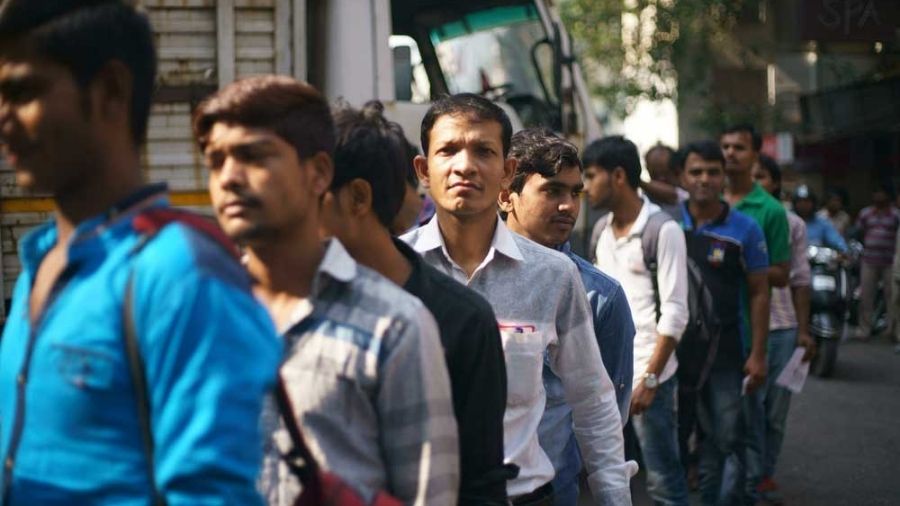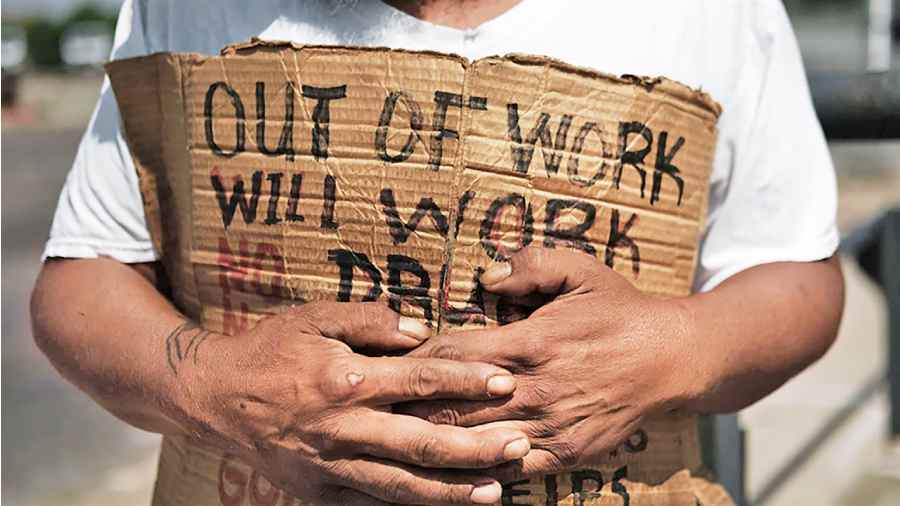The unemployment rate for persons aged 15 years and above in urban areas dipped to 7.6 per cent during April-June 2022 from 12.6 per cent a year ago, the National Statistical Office (NSO) said on Wednesday.
Joblessness or unemployment rate is defined as the percentage of unemployed persons among the labour force.
Joblessness was high in April-June 2021 mainly due to the staggering impact of Covid-related restrictions in the country.
The latest data based on a periodic labour force survey, underlining a decline in unemployment rate amid improved labour force participation ratio, point towards a sustained economic recovery from the shadow of the pandemic.
The unemployment rate for persons aged 15 years and above in January-March 2022 was 8.2 per cent in urban areas, the 15th Periodic Labour Force Survey (PLFS) showed.
It also showed that the unemployment rate among females (aged 15 years and above) in urban areas declined to 9.5 per cent in April-June, 2022 from 14.3 per cent a year ago. It was 10.1 per cent in January-March, 2022.
Among males, the unemployment rate in urban areas dipped to 7.1 per cent in April-June 2022 compared to 12.2 per cent a year ago. It was 7.7 per cent in January-March 2022.
Labour force participation rate in CWS (Current Weekly Status) in urban areas for persons aged 15 years and above increased to 47.5 per cent in the April-June quarter of 2022, from 46.8 per cent in the same period a year ago. It was 47.3 per cent in January-March 2022.
Labour force refers to the part of the population which supplies or offers to supply labour for pursuing economic activities for the production of goods and services and, therefore, includes both employed and unemployed persons.
NSO launched PLFS in April 2017. On the basis of PLFS, a quarterly bulletin is brought out giving estimates of labour force indicators namely unemployment rate, Worker Population Ratio (WPR), Labour Force Participation Rate (LFPR), distribution of workers by broad status in employment and industry of work in CWS.
The estimates of unemployed persons in CWS give an average picture of unemployment in a short period of seven days during the survey period.
In the CWS approach, a person is considered unemployed if he/she did not work even for one hour on any day during the week but sought or was available for work at least for one hour on any day during the period.
Labour force, according to CWS, is the number of persons either employed or unemployed on an average in a week preceding the date of the survey. LFPR is defined as the percentage of the population in the labour force.
WPR (in per cent) in CWS in urban areas for persons aged 15 years and above stood at 43.9 per cent in April-June, 2022, up from 40.9 per cent in the same period a year ago. It was 43.4 per cent in January-March 2022.
Fourteen Quarterly Bulletins of PLFS corresponding to the quarter ending December 2018 to quarter ending March 2022 had already been released. The present quarterly bulletin is 15th in the series for the April-June, 2022 period.












